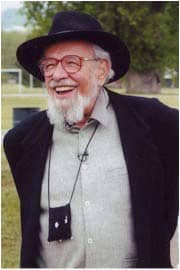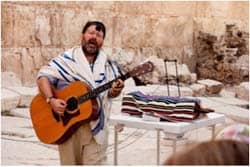Moment Magazine
 Independent
Independent
The rabbi's role today should be no different than it was yesterday: to teach. Not give sermons about current events and politics but to re-introduce the richness of our tradition to the hordes of thirsty congregants who crawl reluctantly to shul desperate for a smidgen of a chicken peck's worth of spiritual grain. They're starving out there, and in too many instances rabbis have become spiffy CEOs instead of disheveled rebbes. The rise of the new gods, Google and Wikipedia, now challenges us further, offering easily accessible information on Judaism that does not require synagogue attendance. We have today more rabbis who in turn have less time, and in many cases have ceased studying, thus possessing fewer teachings to share. Gird thy loins, O thou who callest thyself Rabbi. Get thee forth, fifth and sixth, and climb back up the Holy Mountain to receive once more and to give twice as much, lest the people murmur and return to Egypt (instead of your Israel tour).
Rabbi Gershon Winkler, Walking Stick Foundation, Thousand Oaks, CA
Humanist
The classical role of the rabbi as teacher and philosophical guide persists, but more rabbis are taking on additional job duties as community organizer, fundraiser, if not CEO. In some congregations and organizations we can add the job of webmaster. The internet has taken over all aspects of our lives, no less our Jewish ones, and is a boon, not a threat. If we believe in promoting Jewish literacy for all Jews and not keeping this the private privilege of rabbis who will mediate for the people, then the web is an incredible tool for spreading knowledge, a ready resource for quick answers as well as learned essays. Our job, no different than it was before, is to point people in the right direction, to reliable sources and useful readings. The web has also become the portal that newcomers are likely to visit before even visiting our congregations or organizations. They can "shul-hop" without leaving home. It is critical that our own websites convey the excitement, principles, and unique quality of our institutions to fleeting visitors.
Rabbi Peter Schweitzer, The City Congregation for Humanistic Judaism, New York, NY
 Renewal
Renewal
I am so grateful to be a rabbi today in America, where Judaism is being renewed both with reverence for the past and creative love for the future. I wake up each day and ask God, "How can I be useful? How can I serve?" And then I listen, opening the eyes of my heart. I see the role of rabbi as a spiritual "calling." I am called to bring healing, inspiration, pleasure, and meaning, first to myself and then to this thirsting world. I do this by drawing on the riches of my inheritance. Our ancestors bequeathed treasure upon treasure in the form of story, law, culture, music, the Holy Days, Shabbat, prayer and, most importantly, a language with which to talk about the great mysteries of life. My job is to receive these treasures and pass them on in forms that are compelling and beautiful. I address these challenges as teacher, spiritual leader, social activist, healer, shaman, performer of ritual, facilitator, prayer leader, comforter, scholar, ethicist, historian, community organizer, social worker, prophet, philosopher, theologian, resource-person, fundraiser, administrator, guardian of tradition, Kabbalist, mentor. Jewish information may be readily available on the internet but living a Jewish life depends on more than information. My role as a rabbi is to glean wisdom, seek the essential, and re-interpret Torah in ways that speak to this world that I love.
Rabbi Shefa Gold, C-DEEP: Center for Devotional, Energy and Ecstatic Practice, Jemez Springs, NM
Reconstructionist
When someone says, "I need a rabbi," what do they mean? Amid personal challenges, they need a spiritual counselor. For a Jewish legal question, they need a scholar. If they feel adrift, an activist or organizer could be useful. Rabbis today perform all these functions and many more, but so do other people. The difference between rabbis and lay people, when discernible, is of levels of Jewish learning, of training, of immersion, not of kind. Rabbis may have the title and office, and hopefully the time and the commitment, but knowledge and passion are available to all. Unlike many other religious traditions, Judaism is not sacramental -- anyone can lead prayer, officiate life cycle events, interpret texts, and lead a community. As rabbi, I hope to be a guide and a goad, steering people toward greater Jewish involvement and empowering them to do what I do: study Torah, visit the sick, facilitate community, support one another, work for justice. These actions are mitzvot, incumbent on all. Still, as Judaism has evolved, so have expectations of the modern rabbinate, summed up in the old adage "to comfort the afflicted and afflict the comfortable." Rabbis are pastors and prophets, managers and muckrackers, continuity and change-agents. We are co-creators of a covenantal community who need our congregants as much as they ever need us.
Rabbi Fred Scherlinder Dobb, Adat Shalom Reconstructionist Congregation, Bethesda, MD




